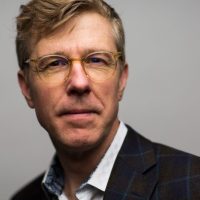A Message from Dan Brown, SEFS Director: Summer 2025
Spring quarter is quickly winding down and as the SEFS community anticipates our commencement ceremony this Friday, I’m reflecting on the excellent work of our graduating students and the important research and engagement activities in which they participate in during their time at SEFS. The work we’re doing as a community is critical in a time of geopolitical uncertainty, climate change and biodiversity loss, and it’s more and more clear to me that our research has positive impacts on communities right here in the Pacific Northwest and globally. While we face increased uncertainty in federal funding for the engaged research we do, it’s helpful to focus on the bright spots in an otherwise dim time. And while UW works alongside other universities to defend itself against damaging and, often, unlawful actions, I find myself thinking often about the way that our research and work is felt, seen and heard outside of the halls of the university. I want to take this opportunity to share just a few of the many ways in which our work here at SEFS is impacting local and global communities.
At SEFS, research scientists from the FLAME Lab are taking to the forest alongside networks of fire-adapted communities and fire ecologists to better understand forest fuels and how they burn. That knowledge is shared with fire-country communities so that neighborhoods can become more resilient and better prepare their homes and property for wildfires. From changing the type of vegetation that grows in yards and reducing fuels around properties to screening roofs so that embers can’t get a foothold, the work of our faculty and researchers is helping keep communities safe and adapt to living with wildfires.
Through the work of UW’s Doty Lab we’re beginning to better understand how certain plants obtain essential nitrogen allowing them to thrive in inhospitable places like rocky riversides. The research is helping us to understand nitrogen fixation in plants and may contribute to reducing the agricultural sector’s dependence on chemical fertilizers. Improving productivity in agricultural systems with less use of fossil-based chemical inputs is critical to a more sustainable, secure, and healthier food system. SEFS research is finding solutions to these dependencies.
Prof. Sameer Shah and his students have continued to advance our understanding of how and why certain practices can aggravate risks from climate hazards, especially for the most vulnerable in our societies. Through this work, communities are learning how better to adapt and prepare for natural disasters and improve food, energy and water security. The research is also looking at the distribution of benefits from post-disaster rebuilding and who is left behind or displaced. This work is promoting adaptation planning and community engagement processes for improved disaster recovery and climate resilience for all members of society. This year Shah, SEFS graduate student Masha Vernik and other environmental experts came together for the first D4 Hack Week focused on disasters, demography, disparities and decisions. It is through these collaborative workshops that we can explore pathways to better understand the impacts of severe weather and prepare our communities with adaptation strategies.
These examples are just a few of the many ways that SEFS research and engagement is building partnerships to sustainably manage our natural resources, create adaptation strategies in response to our changing climate, and build equitable and ethical policies and practices. This quarterly newsletter is full of examples of our work that showcases the depth and breadth of SEFS research and impact.
Through lean times, SEFS donors, alumni, and friends, see our labs, research, students and faculty through to more certain times. As we focus on our core mission of educating the next generation of environmental and resource stewards, SEFS continues to benefit from the generosity of supporters who have contributed to funds that allow us to continue the community engaged, field-based, and impactful research that benefits our students. While our community navigates difficult and unpredictable times, I continue to see resilience in uncharted terrain. The end of the academic year is the perfect time to remind the broader community of SEFS supporters that without you, the critical work that we’re doing would be much more difficult. Thank you for continuing to support our mission and values.
Dan Brown
School of Environmental and Forest Sciences
Corkery Family Director’s Chair
Professor and Director
